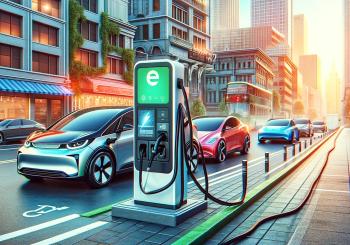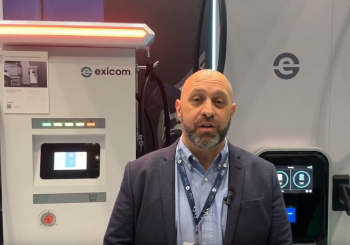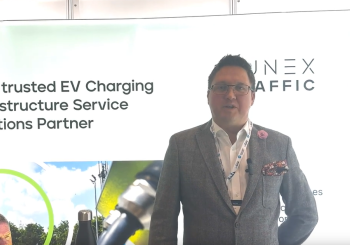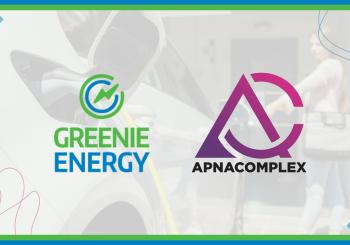Osprey Charging CEO Ian Johnston says that the Budget is "a huge missed opportunity" to increase access to public EV charging for the UK’s drivers.
"There have been calls from across the industry to lower the VAT rate on public charging from 20% to 5%, in line with that of charging at home, which would be a massive boost for EV drivers, and those considering the switch to electric," Johnson comments.
“Osprey itself now has over 1,000 live public EV chargers available across Great Britain, and a vast number of EV drivers rely on the public network – a VAT reduction would have gone a long way in supporting those without access to a domestic charger. Here at Osprey, we will continue to advocate for a reduction in VAT on public charging to see an equalisation with the VAT level on domestic charging. In 2023, we successfully grew our public charging network by 150% and received a number of consumer accolades for the quality of our charging experience, but it’s imperative that this is supported by the government taking action in scenarios such as today’s budget.”
Ken McMeikan, CEO of Moto Hospitality a major deployer of EV charging infrastructure in the UK, said: "Freezing fuel duty is good news for drivers, however it's disappointing that the Chancellor did not go further and introduce a VAT reduction on public charging for electric cars, something we, and many others, have been repeatedly calling for. This is a missed opportunity to make significant strides with EV adoption as it would incentivise more people to make the switch to electric cars. Exempting public charging from VAT ensures that transitioning to EVs is more financially accessible to everyone.
"Encouraging motorists to switch to electric cars will be key if we are to achieve our goals as a nation of decarbonising over the coming decade and the Government has a major role to play in making this possible.”
Prior to the Budget, Auto Trader said that EV drivers are being unfairly disadvantaged by outdated, higher rates of VAT on public electric car charging, and urged the Chancellor to offer a fair charging boost to electric vehicle adoption in next week’s Budget.
EV drivers who can charge at home pay just 5% VAT on their energy bill, but 38% of those without driveways are forced to use public chargers and pay the full VAT rate of 20%. Auto Trader said the price difference between home and public charging is now significant and acting as a barrier to EV adoption.
Responding today (March 6) to the fuel duty freeze that the Chancellor announced, Auto Trader commercial director Ian Plummer commented: "Fuel duty has been frozen every year since 2011, so no self-respecting Chancellor would ever shoot himself in the foot by raising it in an election year.
“Drivers may avoid higher pump prices for now, but the freeze does send yet more mixed messages to any motorists tempted to switch to electric vehicles. Equalising VAT across public and private EV charging points would encourage people to make the switch, and for a fraction of the £6bn cost of freezing fuel duty, so today is a missed opportunity to support the green transition.”
Sue Robinson, chief executive of the National Franchised Dealers Association (NFDA), which represents franchised car and commercial vehicle dealers across the UK, said: “Today’s Budget may prove to be the last major fiscal event of this current government before a general election. 2024 is a critical year for the automotive retail industry. With the ongoing shift in sales models and the landmark ZEV mandate coming into force, dealers will be under substantial pressure to adapt to the transformative trading landscape. As such, the Budget provided a significant opportunity for the Government to provide a strategic and clear vision to support the automotive retail sector but has been an opportunity which has largely been missed."
The following measures were announced/not announced which are set to impact the automotive retail sector:
PRIVATE EV PRICE INCENTIVES
There was no mention surrounding the introduction of private EV price incentives in the Spring Budget.
Sue Robinson: “With the Chancellor’s Spring Budget failing to mention private EV price incentives, the UK remains one of the major markets in Europe with little to offer in terms of price incentives for private buyers of electric vehicles. Conversely, due to strong demand for BEVs, the French government announced a temporary halt to its EV subsidised lease programme last month and will resume it again in the new year due to its success.
“In NFDA’s Spring Budget submission, NFDA had urged the government to introduce incentives to prevent EV sales from flatlining. Noticeably, fleet has been driving sales of new cars rather than private buyers. The Government must do more to help maintain momentum in the private BEV market and increase adoption of these cleaner vehicles across the UK.”
FUEL DUTY
5p fuel duty cut has been maintained and temporarily frozen for a further 12 months until March 2025.
Sue Robinson: “It is a positive move that the Chancellor has heeded our calls in extending the temporary cut in the rates of fuel duty for a further 12 months. This move provides much-needed relief to consumers grappling with a challenging period of global instability and ongoing financial unease. By extending the temporary cut, the Government acknowledges the importance of mitigating inflationary pressures on essential commodities like fuel
Robinson concluded: “There certainly were a few missed opportunities in this Spring Budget, namely providing incentives for prospective EV buyers and addressing wider employment concerns within the industry. By creating the right trading conditions, it will facilitate investment, thereby catalysing growth across the country and the wider economy."





Follow Us On Social Media